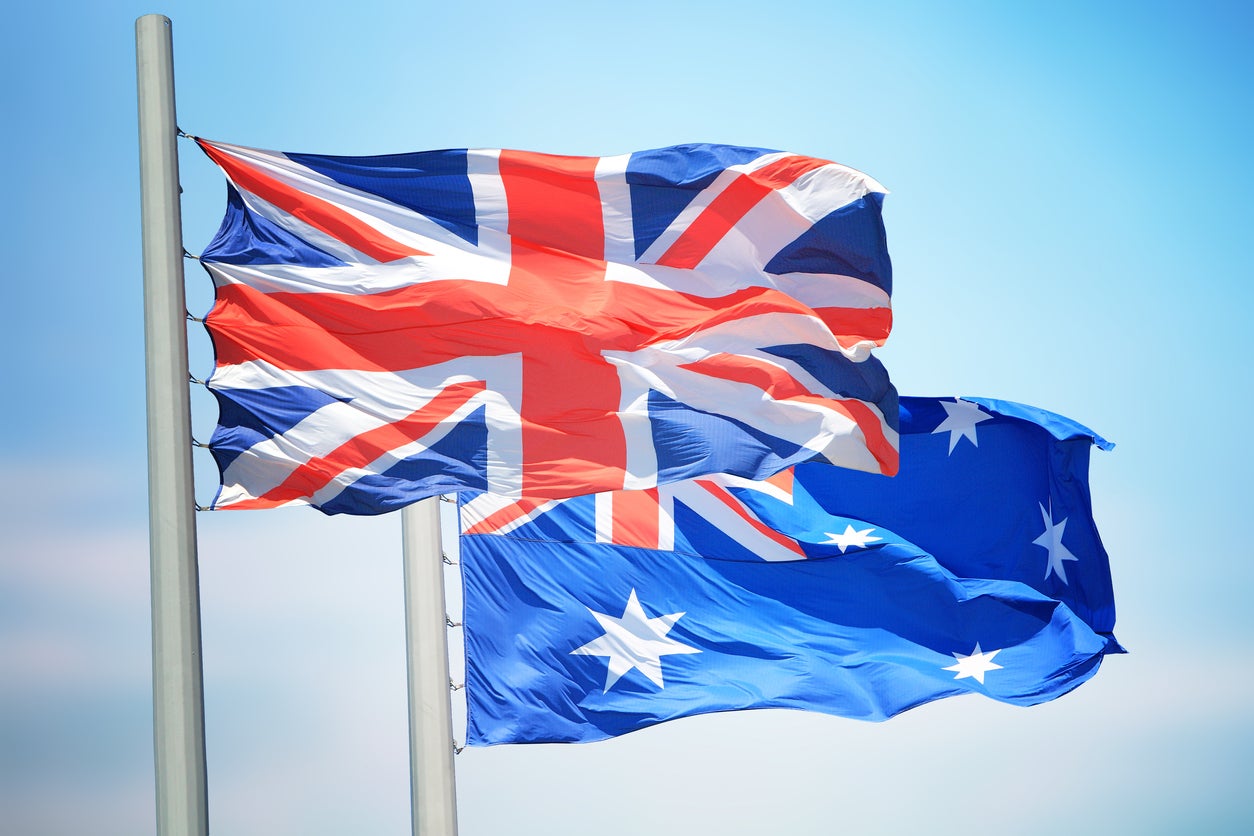The Australia deal shows life post-Brexit will not be better for the UK, but significantly worse
Please send your letters to letters@independent.co.uk

It is hard for the layman to sift through the arguments, to see behind the posturing, and to judge what the overall effects (positive and negative) of an Australian or any other possible trade deal would be. But Ben Chu’s balanced assessment brings it back to the fundamental question that we all had to consider at the referendum. Would the speculative advantages of new free trade deals outweigh the certain disruption in relationships with the EU and significant losses of trade with what had for years been our major trading partner?
Everything that has happened since Boris Johnson’s deal with the EU seems to suggest that life will not be miraculously better for the UK, but will be significantly worse – and probably progressively so. We are seeing disadvantages in the new dispensation on almost every front. There are disputes and unresolved issues with the EU affecting many UK industries, which were apparently unforeseen by the government – and which it still will not acknowledge honestly. Moreover, the government is clearly struggling to sign acceptable large trade deals with almost anyone else.
Gavin Turner
Norfolk
Traffic light flaws
The problem with the traffic lights system for travel is the lack of symmetry. It only works if two countries have similar rates of Covid, overall and in particular variants. If they are different, travel will be allowed in one direction and restricted in the other direction. Experience shows that rates of infection change quite quickly and are not in step in different countries. Travel is very likely to be disrupted by such changes between booking and departure.
Does Portugal really want UK visitors with the Indian variant? The EU proposal to rely on vaccination is symmetric, though it does favour those willing and able to get vaccinated. It must, however, be supported by a statistical study of the impact of vaccinations on transmission, not extrapolated from small academic trials but based upon the enormous amount of data that is now available to all the governments in Europe. This should be extended to see if antibody tests can give an even better prediction of reduced transmissibility.
Jon Hawksley
France
India flights
Let us put aside the daily and conflicting confusion spread by our politicians of who can travel to which of the green or amber designated countries for whatever reasons.
What has been very clear for quite some time is that any direct flights from countries on the red list are unavailable. This makes sense. I have personal experience with this, trying to return from Brazil at the end of January. Yet today, with constant concerns being raised in the media and by scientists about the rapid spread of the Indian variant, we still receive daily direct flights from India. The arrival halls at our airports are jammed with arriving passengers from other countries mixing with those who just arrived from India.
Is this simply an oversight by our confused politicians? Is this a political gamble to keep Indian prime minister Narendra Modi receptive to a trade deal with Global Britain?
Or is this simply negligence on part of our government whose primary concern must be to keep its people as safe as possible in these uncertain times?
Gunter Straub
London
Taking the scraps
Once again Boris Johnson’s crass, insensitive trade negotiations have left our vital farming community with a feeling of betrayal.
Rather than a trade deal that stimulates our economy, the deal with Australia will depress our production of beef, amongst other farmed foods. If the trade deal, which is being negotiated, is ratified, Australian beef will be cheaper to buy than British beef and therefore more affordable to those struggling to feed their families.
To an industry already on the brink, this trade deal will further accelerate the decline in beef produce in Britain – albeit there is a 15-year assimilation of the deal.
So far, Brexit has reduced the number of people coming to Britain to work and caused many people to leave Britain. Transport to/from and trade with the EU has reduced by a large margin. Vast amounts of money and financial services have moved to other countries. Our fishing industry has been decimated. Northern Ireland peace is compromised. And now we may have a trade deal with Australia that doesn’t benefit Britain. On the horizon is chlorinated chicken from America, perhaps?
We seem to be magnanimous to other countries at the expense of British industry. Boris Johnson and Brexit have succeeded in reducing our opportunities to trade with the world as an equal partner. We are having to take the scraps offered or not trade at all. So much for “sovereignty” – it doesn’t pay the bills.
The current negotiators have destroyed hundreds of years of trading benefits accrued by Britain in one misguided, disastrous act – Brexit.
Keith Poole
Basingstoke
Let them sing
I fully appreciate the government is in a very difficult situation but some of the decisions have been very difficult to understand. I never understood why golf was stopped as it’s very rare the players get closer than two or three metres and they’re outside. Why was and is swimming restricted? Again, very rarely does anyone get near anyone else, the water will kill germs and for the large majority of swimmers, and exhalation is underwater. Lastly, why is choir singing so forbidden now? The large majority of people in choirs are vaccinated and sober, can easily be safely spaced and don’t face each other. It’s OK for boozed-up football supporters to gather in thousands, and aircraft, trains and buses to be full, but not choirs of any size. I wonder if money has something to do with it?
Jim Alexander
Maidenhead, Berkshire
Join our commenting forum
Join thought-provoking conversations, follow other Independent readers and see their replies
Comments